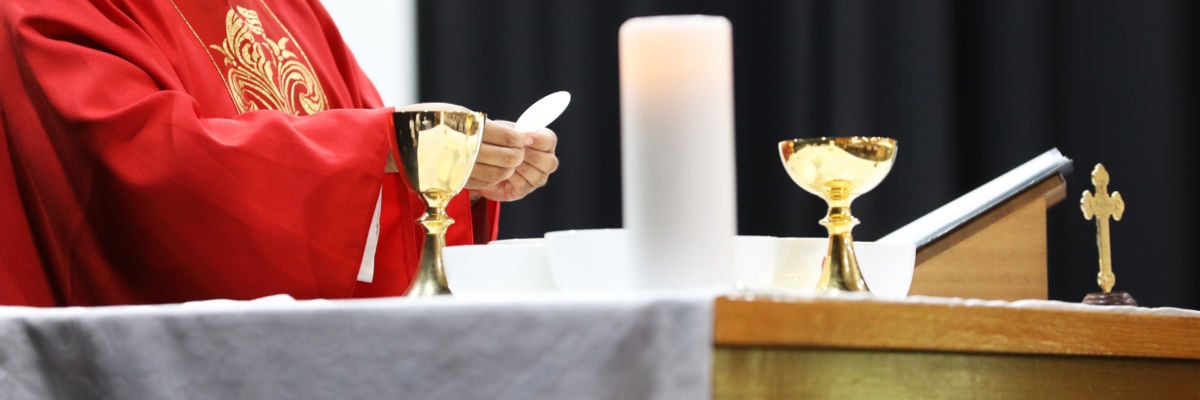
Question:
Answer:
We don’t pray in the third person. The Church’s liturgy is its official public worship of God. Since it is not private worship, the members who are present are acknowledged throughout the service. So every so often, the priest-presider will address them with, “The Lord be with you,” and the people respond, “And also with you.” We are communicating with each other. This is not a prayer.
May the Lord accept the sacrifice at your hands for the praise and glory of his name, for our good and the good of all his Church is not a prayer. It is addressed to the priest as an acknowledgement of the sacred action he is about to undertake. It is a response to his request: “Pray, brethren, that our sacrifice may be acceptable to God, the almighty Father.” Even though he has just asked the people to pray, their response is to him and is not meant to be a prayer.
The ultimate offering prayer comes later: “Through him, with him and in him, in the unity of the Holy Spirit, all glory and honor is yours, almighty Father, for ever and ever.” Only the priest says this, and the people affirm the prayer with “Amen.” Both the priest’s words and the people’s words are prayer and are addressed directly to God.



